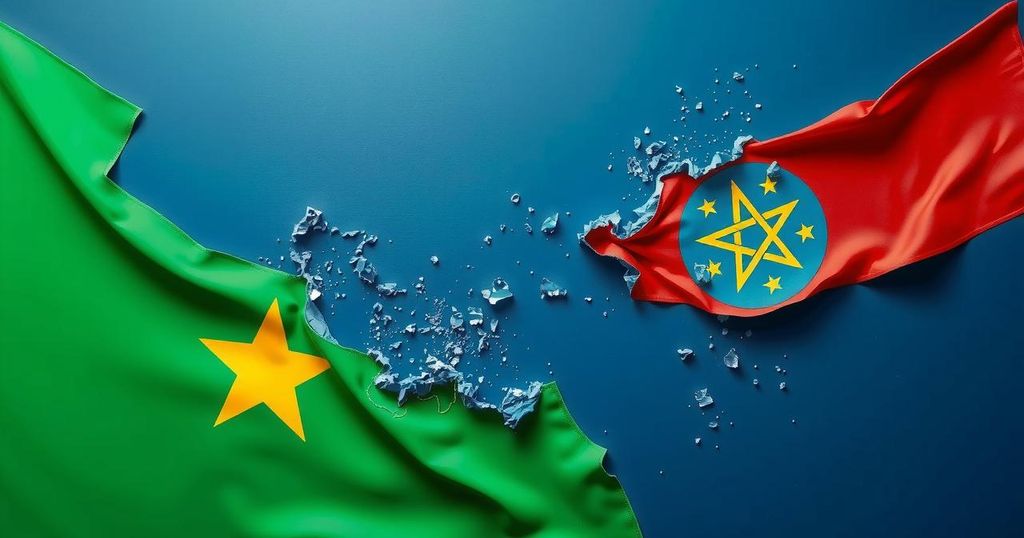Global news
ABDIRAHMAN MOHAMED ABDULLAHI, AFRICA, AFRICA CONFIDENTIAL, ALI MOHAMED ADAN, DIPLOMACY, EGYPT, ERITREA, ETHIOPIA, EUROPE/ASIA, FEDERAL REPUBLIC OF SOMALIA, GAROWE ONLINE, HARGEISA, HORN OF AFRICA, ILYAS ALI HASSAN, IR, IRRO, MOGADISHU, MUSE BIHI, MUSE BIHI ABDI, RED SEA, REGIONAL COOPERATION, REGIONAL SECURITY, REPUBLIC OF SOMALIA, SOMALIA, SOMALILAND, SOVEREIGNTY, TANZANIA, TURKEY
Leila Ramsay
0 Comments
Upcoming Review of Sea Access MoU Between Somaliland and Ethiopia Under New Leadership
The upcoming review of the Sea Access MoU between Somaliland and Ethiopia by new President Abdirahman Mohamed Abdullahi (Irro) highlights significant political tensions in the Horn of Africa. With Somalia opposed to the agreement, describing it as a violation of its sovereignty, the political climate remains fraught. Irro has expressed intent to prioritize the review and aims to navigate the region’s complex diplomatic landscape following his inauguration on December 13, 2024.
HARGEISA, Somalia – The anticipated review of the contentious Sea Access Memorandum of Understanding (MoU) between Somaliland and Ethiopia is expected to commence under the leadership of Abdirahman Mohamed Abdullahi, known as Irro. This agreement, which was established nearly a year ago, has yet to be publicly scrutinized.
The MoU’s provisions have incited tensions in the Horn of Africa, particularly as Somalia has voiced accusations against Ethiopia, alleging intentions of annexation that could provoke military confrontations. Despite these claims, Ethiopia has largely refrained from addressing the specifics of the agreement.
Should the agreement be enacted, it would grant Ethiopia access to 20 kilometers of the Red Sea, contingent upon the acknowledgment of Somaliland as a sovereign entity, despite its status as a part of the Federal Republic of Somalia.
In light of a recent shift in Somaliland’s leadership, this agreement is set to undergo comprehensive examination, with Irro seemingly supportive of its aims, focused on advancing the aspirations of Somaliland for international legitimacy. Reports suggest that Irro plans to assess the MoU closely upon assuming office.
In discussions with outgoing President Muse Bihi, Irro has recognized the agreement’s importance, signaling his commitment to prioritize the review of this controversial deal. He is expected to officially assume the presidency on December 13, 2024, before gaining detailed insights into the MoU.
Ethiopia has previously characterized the agreement as a pivotal economic transformation, inferring its readiness to move forward with implementation. Tensions further escalated following Somalia’s expulsion of Ethiopian diplomat Ali Mohamed Adan, citing his involvement in actions inconsistent with his diplomatic duties.
Somali Ambassador to Tanzania, Ilyas Ali Hassan, reaffirmed the Somali government’s position against the agreement, labeling it a significant breach of national sovereignty. Supported by allies such as Egypt and Eritrea, Somalia has sought international cooperation to annul the agreement.
Despite Turkey’s attempts to mediate the ongoing dispute, Somalia continues to assert that discussions can only proceed if Ethiopia renounces the MoU. Irro is preparing to take office following President Muse Bihi, who served from 2017 until the recent elections held in November 2024.
The Sea Access MoU between Somaliland and Ethiopia is a significant diplomatic and territorial agreement that has stirred considerable unrest in the Horn of Africa region. Ethiopia’s proposal to gain access to the Red Sea by recognizing Somaliland warrants close examination due to its implications for international recognition and territorial integrity. This pact has faced severe backlash from Somalia, which perceives it as a threat to its sovereignty and national unity, leading to diplomatic rifts and calls for international intervention.
In conclusion, the review of the Sea Access MoU by Abdirahman Mohamed Abdullahi as he assumes the presidency in Somaliland promises to be a pivotal moment in the region’s political landscape. The agreement has significant implications for Somaliland’s quest for legitimacy and the geopolitical dynamics within the Horn of Africa. Irro’s examination of this agreement will undoubtedly shape future relations between Somaliland, Ethiopia, and Somalia, necessitating careful consideration of all associated ramifications.
Original Source: www.garoweonline.com




Post Comment